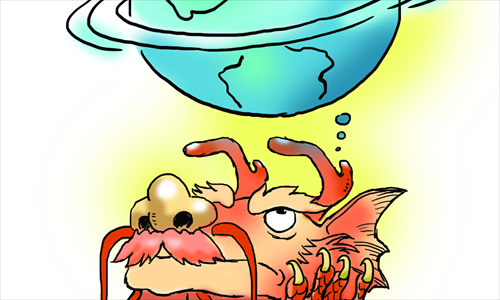Sino-German relations strive to balance cooperation and competition

When we talk about any bilateral relationship, we do so against the background of globalization. That goes for the Sino-German relationship too.
Two phenomena have dominated current international relations. The first is that many rules that originated from the West, such as the market economy and cultural norms, have unprecedentedly extended their influence all over the world. We have witnessed their great success if we compare the current era with that of 30 or 40 years ago.
The other phenomenon is that when we analyze the world with traditional theories of international relations, we can see that there's power shifting, or competition among countries. When it occurs, the world becomes unstable, with frictions, conflicts or even military clashes. Only when a new dominant force emerges can the world become more stable.
We are living in a world where one thing overwhelmingly depends on another. The flow of all kinds of items, such as trade, information and people, is speeding up. About 30 years ago, we communicated through letters, but now we use e-mail, which can be accessed in a few seconds. Then there's electronic money, globalized management control, satellite communication as well as trans-regional pollution.
Meanwhile, few of these flows have been restricted by borders. Goods, trade and people may be, but not information, e-business or pollution. The driving force is the rule of the market, which is smashing all the traditional restrictions, including administrative and legal obstacles. The rule of the market has made use of all resources from every corner of the world and brought them into their full potential.
The market does not only belong to the West, but it is the West that introduced it to the world. The market not only creates wealth, but also changes our roles. It has changed the way we cooperate and compete with others. We win competitions by cooperating with another, and that's what makes the world amazing.
Nonetheless, we should not forget that cooperation cannot fully replace competition. The international community is comprised of sovereign states. Each sovereign state has its own set of theories to analyze the behavior of the international community, and even has the ability to redistribute resources and to become the backup in market competition. As the market is operating under various rules, cooperation and competition usually exist at the same time or even intertwine with each other, making it difficult to judge whether we should cooperate or compete with others.
The biggest challenge the Sino-German relations face is how to distinguish competitive fields with cooperative ones. We need to know when competition could result in mutual benefit. Once when I was in Germany, former Chinese ambassador Wu Hongbo told me of a successful case of cooperation between China and Germany. The two used to be rivals in the field of heavy industry as China gained a scanty advantage in the processing trade despite its cheap heavy industry products.
When China was criticized by various sides for its allegedly vicious competitive practices, one of China's heavy industry enterprises purchased a German one. The Chinese company moved the assembling procedure to Germany, which created job opportunities for locals in heavy industry. Meanwhile, such cooperation brought huge benefit for Chinese merchants, as goods made in Germany sell at better prices than those made in China. Such cooperation replaces competition.
The two parts involved in a competition may come to a deadlock. It can be very serious, such as the historical conflict between Germany and France. But there will be another way round.
Two countries may not cooperate in security or politics but instead try economic means. Then they can adopt the economic pattern to create new management and legal mechanisms. More cooperation will replace competition to bring the range of competition under control.
China and Germany should research cases to look for more opportunities. This pushes us to rethink traditional concepts about international relations. If we simply embrace those rigid Western theories, we may miss these opportunities.
The article is based on a speech made by Zhou Hong, director of the Institute of European Studies at the Chinese Academy of Social Sciences, at the recent symposium of "China and Deutschland: 40 Years' Diplomatic Relations" and the 14th annual meeting of the German division of the Chinese Association for European Studies. opinion@globaltimes.com.cn